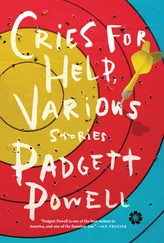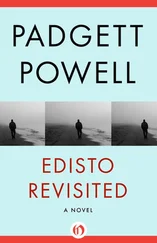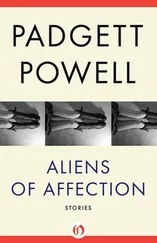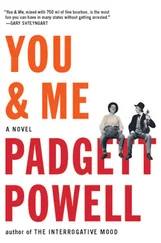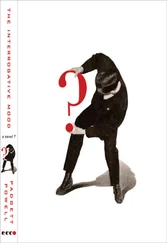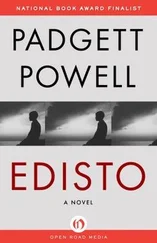“Didn’t say that.”
Mr. Irony was irritable. I leveled his glass with wine from the coldest part of the refrigerator. The colder, the less likely he is to deem it vinegar. I considered dropping the subject of world touring until he perked up. All subjects except perking up, in fact, and that subject never to be broached. The coldness of the wine made Mr. Irony open his mouth and extend his head forward as if he were a goose about to honk.
“For two?”
“Excuse me?”
“You spoke of taking Magellan’s cruise, I believe. For two?”
“Yes, sir. Unless—”
“—?”
“I could get more tickets: $1.50 each.”
“Most reasonable. Do tell.”
“Pulled them from Duke, sir. Man at His Best just reads the travel section, and these, perforated in the binding, are his world-tour tickets, sir. Two tickets, $3.00 magazine. Man at His Best.”
“You said that. Play a joke, as a ball in golf, once.”
“Yes, sir.”
Mr. Irony sat regarding this proposition in the attitude of one regarding no proposition at all. This was part of the method, and I confess there may be more to it. It is possible Mr. Irony was regarding the proposition with his entire being, or with 10 percent, while the other 90 percent was regarding all the things tangential to talking with a student. Optic yellow tennis balls might well have been at the center of his brain.
“Not easy to do, I know,” he said, apparently referring to the golf-ball conceit, and, if so, demonstrating a rare instance of tutorial sympathy. I took advantage of the soft-looking moment.
“Do you care to go or not, sir?”
“Care to go.”
“More tickets, then?”
“Two more’d be nice.”
“For your wife, sir, and—”
“Not my wife. Not my wife. And not my wife.”
“Anyone in mind, sir?”
“Not yet. What is the mode of travel?”
“Varies, sir.”
“—?”
“Unspecified, sir. On the ticket: unspecified variable means of transport.”
“Makes one rather reconsider the wife,” he said, scissoring his leg. He was feeling considerably better. “Short of planes that land too hard, nothing more pleasing to me, less to the wife, than transportation that doesn’t work.”
“Minimizes the self-importance of the individual, sir?”
“Naturalmente.”
“You’d best,” Mr. Irony said before we purchased our extra tickets, “you’d best make sure that Duke allows Men at Their Best to travel with women.”
“Right,” I said. He had a point.
I checked the matter. The woman I spoke with at Duke assured me that the $1.50 world-tour ticket would be honored without respect to sex. I got us another two tickets, and Mr. Irony and I went down to the International Hostelry for Available Traveling Women.
At the International Hostelry for Available Traveling Women we were abruptly led to a gymnasium filled with cots and women. We were received, on the floor, not unlike visitors to a dog pound. A few women remained still, a few showed us minor interest, but most jumped up and wagged themselves violently at us. “I’ve seen this spectrum of behavior in a whorehouse in Texas,” Mr. Irony remarked, not ostensibly looking at any of the women.
Out of a sense of courtesy, I looked at the women. They were, most of them, beautiful. I felt, in fact, as if I were drowning before a replay of all the missed sexual opportunities of a lifetime.
“Gravid with heat in here,” Mr. Irony said.
“Yessir.”
Some of the women leapt up, approached us; others held back, deliberately diverting themselves; others remained indifferent. “Flat on their backs, those two,” Mr. Irony pointed out, indicating in a corner two supine figures on cots. Beneath their cots, packed backpacks: two neat bundles, in distinct contrast to the sloppy, strewn, dorm-room environs of the cheerier, aggressive women.
“Be polite among Harpy as I steer us to the Defeated Ones,” Mr. Irony instructed. This I did, occasionally shaking hands, as Mr. Irony tugboated us to the corner of the absolute uninterest.
We stood between the two cots looking at two broad-hipped women in cotton shirts. They were similar enough to be sisters: square faces, full lips, wide eyes.
“You girls healthy?” Mr. Irony asked.
“I’m as fine as frogs’ hair and she’s right as rain,” one of them said, motionless.
“Be down,” said Mr. Irony. “Do you cost more, or come with liabilities, or strings, or whatever, for this sour demeanor which wins a sane man?”
The woman who had spoken looked at her companion.
“No,” the companion said.
“’Tis settled, then,” Mr. Irony said. “We court you.” He turned to me. “This would be my opinion extempore regarding world-traveling companions. You have a voice in the matter.”
“Mr. Irony,” I said, pulling him a bit out of earshot, “ordinarily I would hesitate to differ, would automatically defer to your experience. But I confess to have wanted twenty women in here more than these. But. Now I’m won. These are the girls one finds in a suburban cowboy club, looking for love. They are of good stock, well-bred, well-heeled in the moral zone but not without appetites one could call—”
“It’s wonderful you are filled with ideas, son. Keep them to yourself.”
Mr. Irony turned to the women. “Ladies, a world tour?”
They hit the floor, boots on.
We made arrangements to meet them later. On the way out, Mr. Irony turned to me and said, “Unless I miss my mark, these girls don’t expect things to turn out well. My kind.”
“They’d better not,” I said.
This was the sort of obtrusive remark Mr. Irony ignores. I was having more and more trouble getting in a word edgewise. It was making me sullen rather than ironic.
First stop, on the cliffs of Acapulco, the girls stand, nipples spiked up in the salty breeze, as Mr. Irony prepares to make the 85-foot dive into the swells. “One of the more challenging stretches of your Duke world tour,” our Duke brochure tells us.
“If he can do it,” my Traveling Woman says, “I can do it, and I can do it nekkid.”
Mr. Irony takes deep breaths. I read to him from the brochure: “You must determine the seventh and largest swell of the series and count to seven once it clears the large rock on the left. Don’t look back, and keep it tight.”
“That it?”
“That’s it, sir.”
“And grap your cojones, señor,” a local boy adds, watching the spectacle of gringos with considerable excitation. Mr. Irony grabs himself, with two hands, before tumbling from the cliff in a spidery roll altogether suggestive of a horse taking a fall.
From the swell into which he exploded, we see Mr. Irony’s red face surface, unquestionably smiling. The word real wafts to us, in reverb, seconds after we see his mouth open and close.
“Shit,” my Traveling Woman says. “The turkey survived.”
“Grap your teeties,” the boy tells her.
Atop elephants in Lanxang, we hear Mr. Irony say, “I am immortal. I have died a thousand deaths.” I turn to acknowledge that I am all ears. “Of the imagination,” he says, as we lurch over this small but important part of the world.
Each of us has grown accustomed to the odor of the elephant he rides but not to that of the mahout behind whom he sits. The Traveling Women, on the third and fourth elephants, have complained of this very thing.
“Deodorant would go a long way here,” a Traveling Woman said.
“Or nowhere,” the other Traveling Woman said.
Mr. Irony, in the lead, then approved of this sentiment with a pursing of his lips barely noticeable before his face filled with rare emotion, in time with the stepping of his elephant into a stream from the bank of which could be seen sliding crocodiles, or something that looked like crocodiles. I was given the lead, following the fording.
Читать дальше

